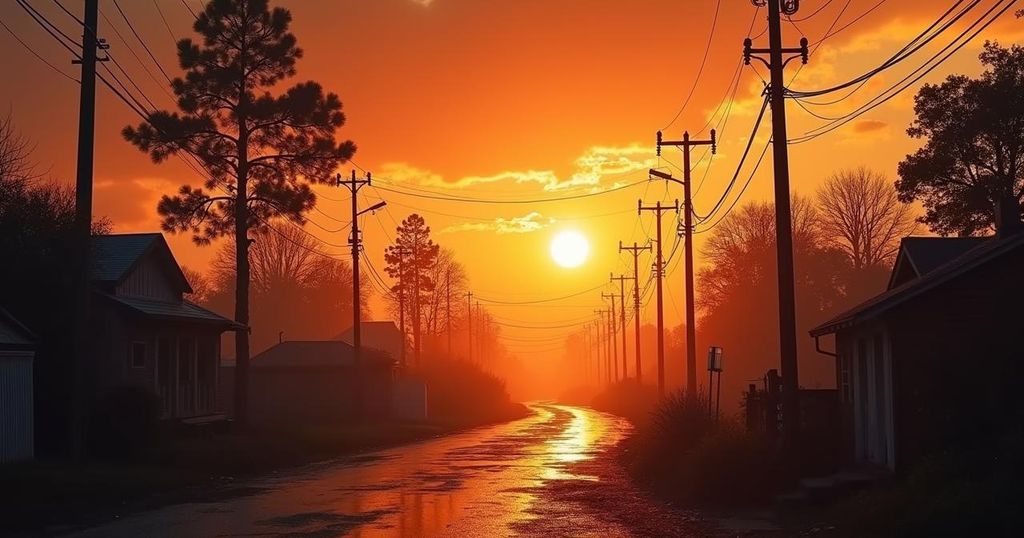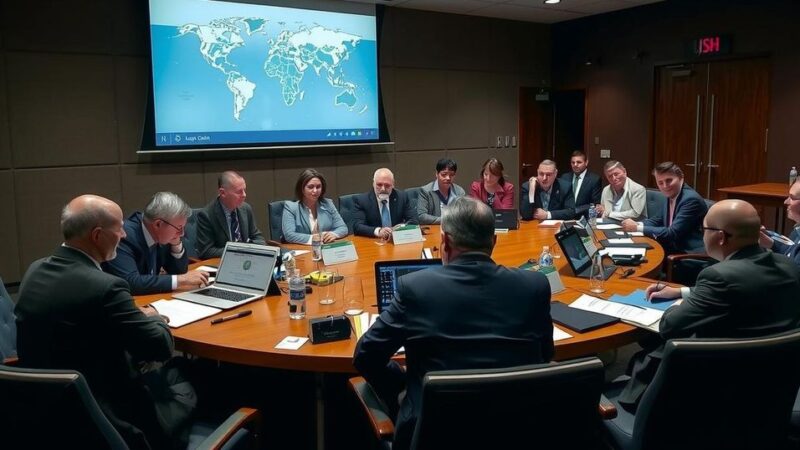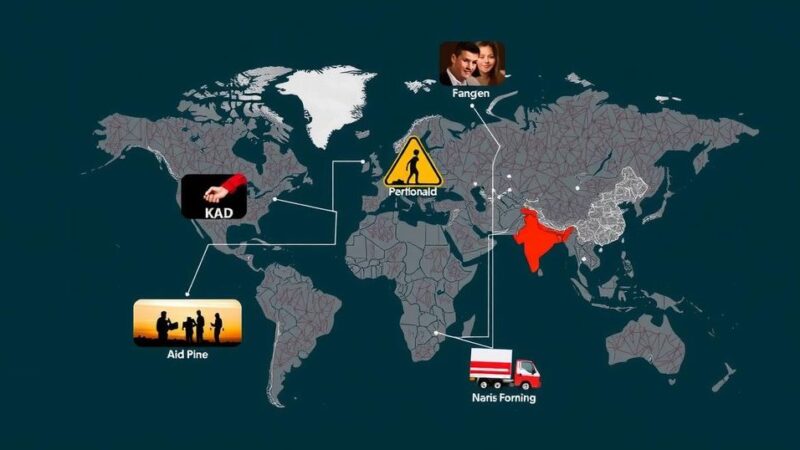In the wake of Hurricane Helene, nearly one million individuals remain without power across the Southeastern United States. The death toll has climbed to over 184, with significant damage reported in North Carolina and surrounding states. Community and governmental efforts are underway to provide relief, but many residents continue to face ongoing challenges related to power and water supply.
One week after Hurricane Helene made landfall, approximately one million residents across the Southeastern United States remain without power, intensifying the urgency for essential services such as electrification and water supply. As the hurricane wreaked havoc, primarily impacting Florida, Georgia, North Carolina, South Carolina, and Virginia, the number of families devoid of running water has also surged in Western North Carolina. The death toll associated with the hurricane has tragically escalated to over 184, with ongoing search and rescue operations likely to reveal further casualties. The breakdown of fatalities includes 91 individuals from North Carolina, followed by casualties in South Carolina (36), Georgia (25), Florida (19), Tennessee (11), and Virginia (2). The situation in and around Asheville, North Carolina, remains particularly critical, where Helene’s remnants transformed into a tropical storm, leading to unprecedented rainfall totaling over a foot, further damaging already vulnerable infrastructure. The community has suffered hundreds of property damages, with numerous neighborhoods lacking power and water. In response, Buncombe County officials have initiated the distribution of ready-to-eat meals and bottled water to those in need, establishing limits on daily allocations. Residents, faced with the challenge of their daily comforts diminished, have taken matters into their own hands; for example, Brandon Mashburn, frustrated by the lack of services, organized a cleanup effort at Malvern Hills Park to ensure children have a safe recreational area. Moreover, power restoration efforts have continued, with expectations that some regions, such as Pinellas County’s barrier islands in Florida, will not see restoration until the upcoming weekend. President Joe Biden traveled to the affected areas to assess conditions firsthand and offer support. The emotional toll is also evident; Lysa Gindinova has been unable to contact her relatives after the storm, who had recently relocated from Ukraine. This poignant account underlines the personal losses intertwined with the broader devastation. Overall, Hurricane Helene has inflicted significant damage across multiple states, manifested in both loss of life and destruction of infrastructure. The community is urged to unify and engage in relief efforts to address the widespread consequences of this natural disaster.
Hurricane Helene made landfall on the Gulf Coast of Florida as a Category 4 hurricane and subsequently weakened to a tropical storm. The aftermath of Helene has resulted in extensive damage across multiple Southeastern states, with persistent power outages and water supplies severely compromised. Areas such as Asheville, North Carolina, have been particularly hard-hit due to intense rainfall that caused flash flooding and mudslides, worsening an already saturated landscape. Community response has been crucial in the recovery efforts, even as governmental assistance is deployed to restore lost services and manage ongoing rescue operations.
In summary, Hurricane Helene has left an extensive trail of destruction across several Southeastern states, resulting in significant loss of life and widespread disruption to essential services. The community response has been commendable as residents band together to help one another despite the dire circumstances. Continued efforts from federal and local officials are imperative to restore normalcy and assist those still suffering in the aftermath of this devastating hurricane.
Original Source: www.usatoday.com






